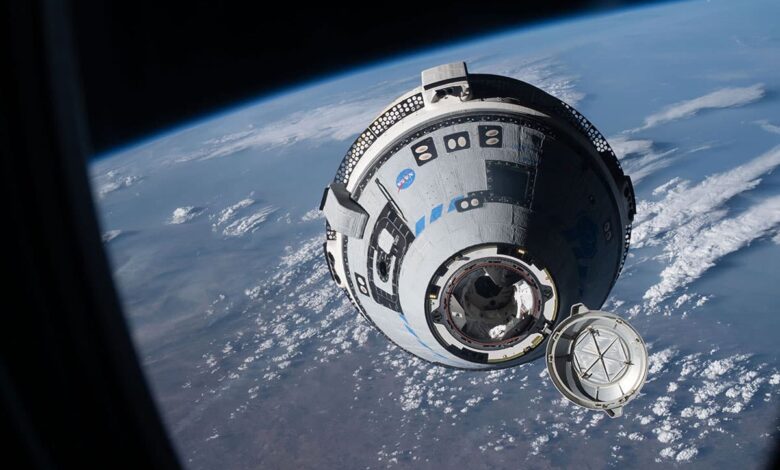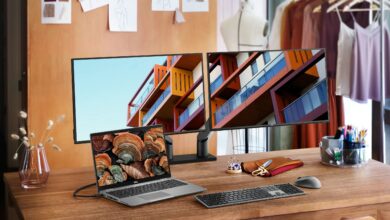NASA Will Decide on How to Bring back the Stranded Astronauts This Saturday

- On August 24, NASA will finally announce how it plans to bring back astronauts Sunita Williams and Butch Wilmore who have been stuck in space for more than 2 months.
- The problem started with the Boeing Starliner malfunctioning after reaching its destination, making it unsafe to fly back in it.
- So now there are two options – either the Boeing Starliner will get a flight clearance and bring them back or they will have to wait for a SpaceX vehicle.
- If the second option is chosen, they won’t be back before February 2025.

Sunita Williams and Butch Wilmore have been stuck in space for about 2 months. This Saturday, NASA will finally decide their fate – whether they will be able to come back home in their own spacecraft or will they have to wait for SpaceX’s vehicle.
A Flight Readiness Review (FRR) will be held with the following attendees:
- The meeting will be chaired by Bowersox, former astronaut and head of NASA’s Space Operations Mission Directorate.
- Agency administrator Bill Nelson will also join the review.
- NASA’s administrator
- Associate administrator
- Deputy administrator
- Various agency center directors
- Agency technical authorities
- Flight Operations Directorate
Before the agency review, another meeting will be held among lower-level managers in a so-called Program Control Board to discuss their findings. A similar meeting had been held before as well but the managers disagreed on whether the agency should sign off the Starliner.
However, there’s a new piece of information that will be briefed by the engineers to the Program Control Board on Friday.
‘Engineering teams have been working to evaluate a new model that represents the thruster mechanics and is designed to more accurately predict performance during the return phase of flight. This data could help teams better understand system redundancy from undock to service module separation.’ – NASA
Whatever is decided at the agency review will be released to the public in a press conference held later that day.
Background of the Mission
For those who aren’t familiar with the situation, here’s a quick recap.
Astronauts Sunita Williams and Butch Wilmore were selected to fly aboard Boeing Starliner, becoming the first persons to ever ride on it. The flight was bound for the International Space Station with a simple mission – to check whether the Boeing Starliner was fit for space missions or not.
This is because NASA wants two American spacecraft, along with the Roscosmos Soyuz spacecraft, that can carry astronauts to outer space, which will help ensure that there’s always a crew aboard the orbiting complex.
Initially, everything happened as planned. The spacecraft was launched on June 5 and it reached its destination on June 6. They were supposed to return in a week but the vehicle started malfunctioning and now they have been stuck in space for about 2 months.
Problems With the Boeing Starliner
The central issue is with the Starliner’s propulsion system, which is part of the spacecraft’s “service module”. This is an important component that is needed to back the capsule away from the space station and position it toward the Earth’s atmosphere
However, multiple thrusting attempts failed as the thrusters overheated when fired and the propulsion system leaked helium.
This was followed by months of testing, both in space and by engineers back on Earth but ultimately they failed to come to a mutual decision on whether the Starliner can take a trip back to Earth. There’s a risk that the problem might get worse during the return journey.
What Happens Now?
What happens eventually will depend on the outcome of the agency review. However, there are only two possible options here.
- The first option can be executed if the Flight Readiness Review (FRR) goes in Boeing’s favor. In that case, it will undock from the space station in early September and make its way towards Earth.
- The other option is to wait for the upcoming SpaceX Crew Dragon mission. Two extra seats will be added that Williams and Wilmore can use. In the meantime, the Boeing Sterling will return to Earth by itself.
However, if the second option is chosen, Williams and Wilmore won’t be coming home before February 2025. This option also comes with side effects such as increased exposure to radiation during their time in space.
As for Boeing, regardless of what happens, the outcome will be unfavorable.
- The company has already struggled to develop the Starliner and has incurred $1.6bn in losses on the program.
- Plus, multiple crashes in the last few years such as the one involving its 737 Max model and the incident in January where a door panel flew out mid-flight, have taken a toll on its image.
- Not to mention, there’s also been immense pressure from the authorities who are investigating the matter.
The last thing it needs is the failure of its Starliner mission. If it cannot bring the astronauts, NASA will not certify operational crew missions without an additional test flight. But in that case, it won’t be able to complete all 6 flights that are scheduled in its $4.2 billion NASA contract before the International Space Station closes in 2030.
Also, SpaceX is its biggest rival. So having its rival retrieve the astronauts from space will be a massive blow for Boeing. No matter what happens, there’s no happy ending for Boeing this time.
 Our Editorial Process
Our Editorial Process
The Tech Report editorial policy is centered on providing helpful, accurate content that offers real value to our readers. We only work with experienced writers who have specific knowledge in the topics they cover, including latest developments in technology, online privacy, cryptocurrencies, software, and more. Our editorial policy ensures that each topic is researched and curated by our in-house editors. We maintain rigorous journalistic standards, and every article is 100% written by real authors.



